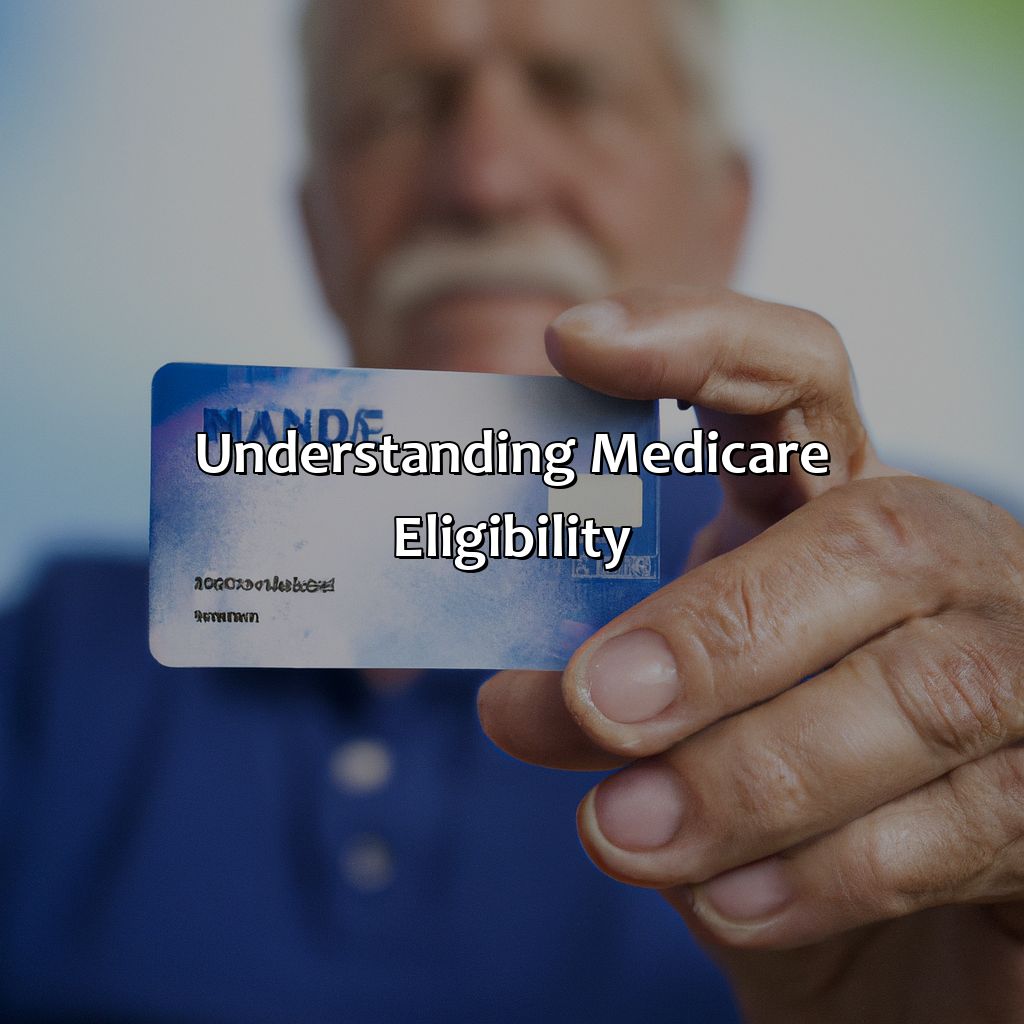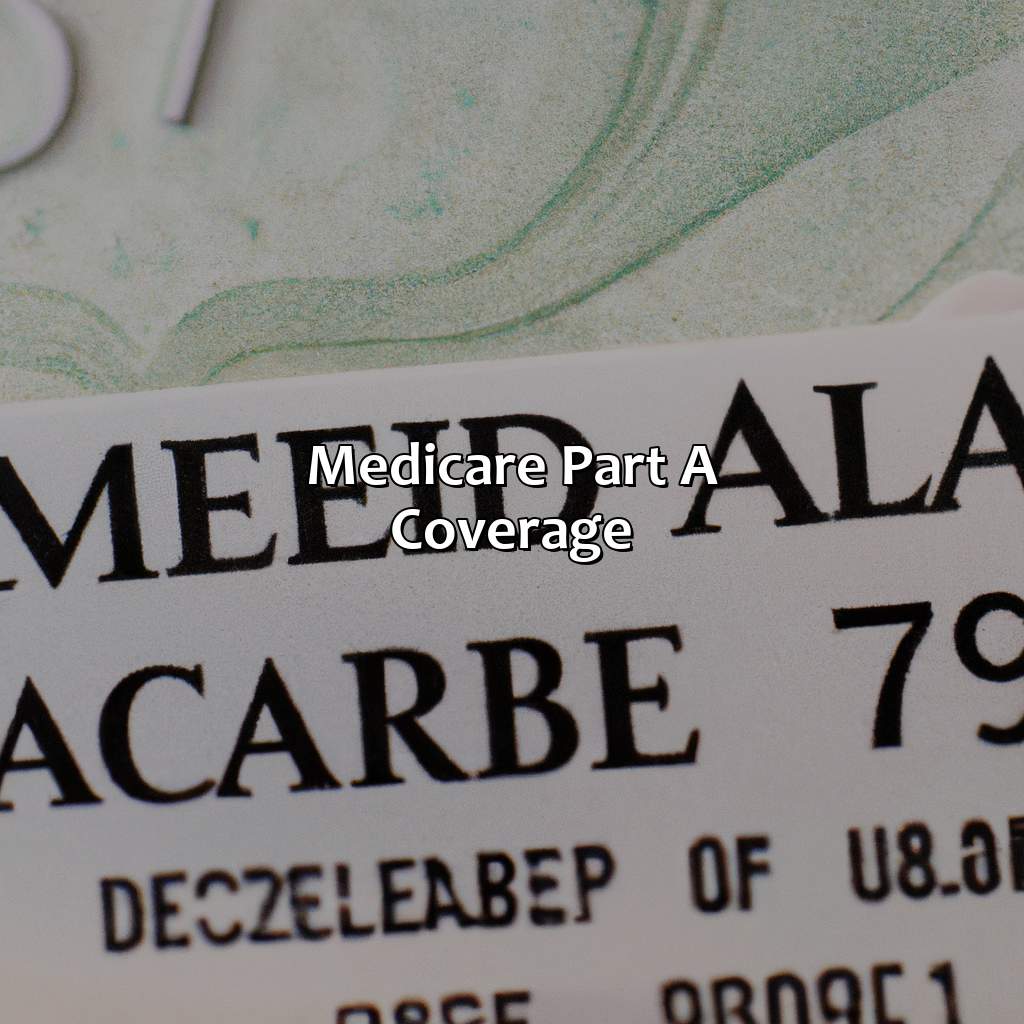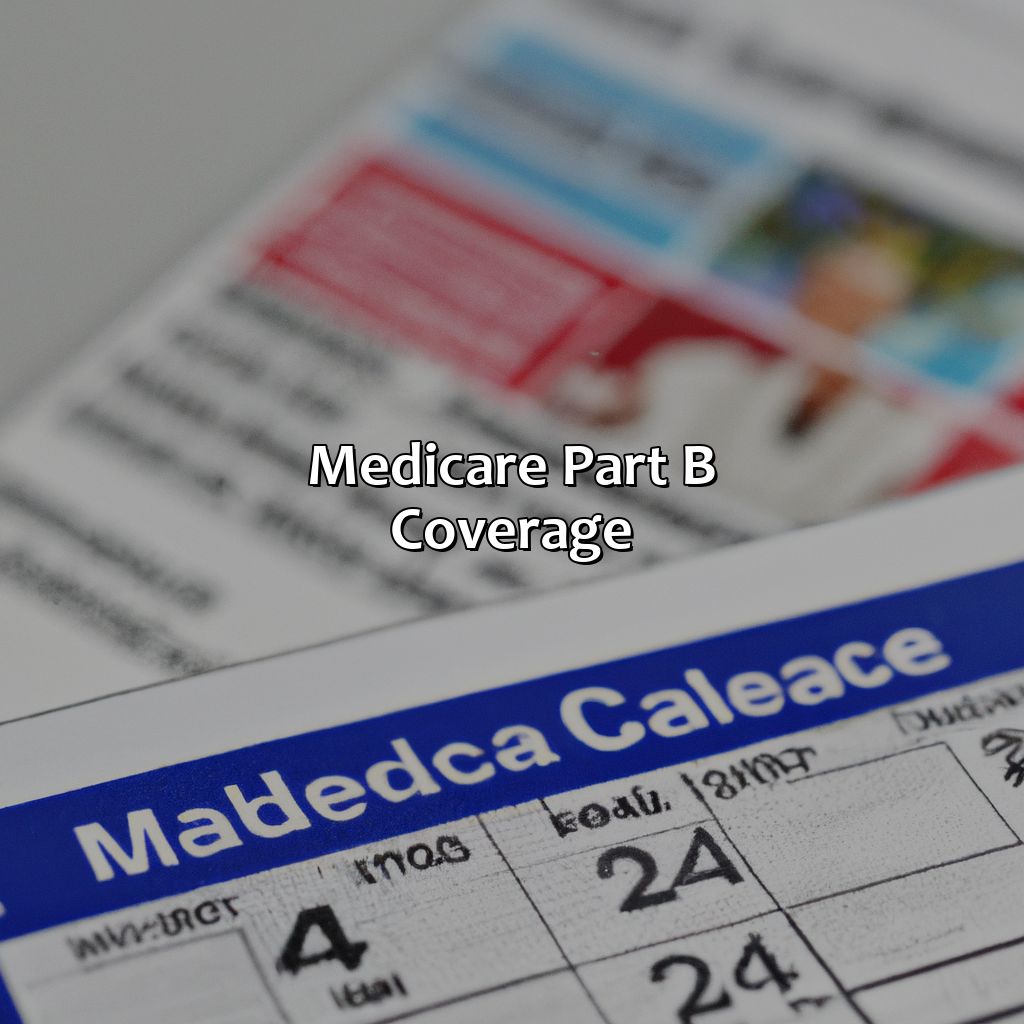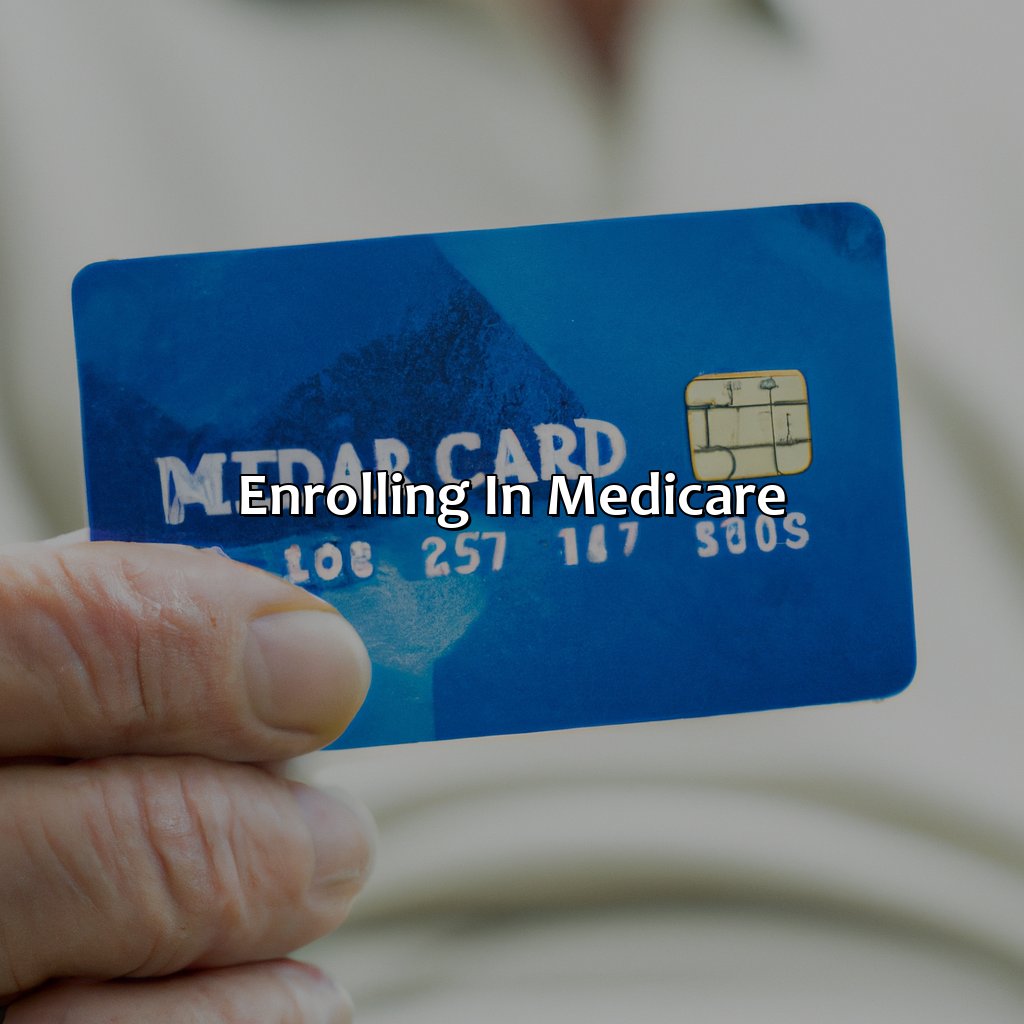What Is Medicare Retirement Age?
Key Takeaway:
- Medicare eligibility begins at age 65 for most individuals.
- There are exceptions to the retirement age rule, such as those with certain disabilities, end-stage renal disease, or ALS.
- Medicare Part A covers hospital and skilled nursing care, while Part B covers medical and preventive services.
Are you planning for your retirement and confused about when you should enroll for Medicare? Know the eligibility criteria and key benefits of Medicare before you take the plunge. You will find everything you need to know in this blog.
Understanding Medicare Eligibility
Understanding Medicare Eligibility
Medicare is a federal insurance program that covers individuals aged 65 and above or those with certain disabilities and illnesses. To qualify for Medicare, one must meet specific eligibility requirements, including citizenship or legal residency, work history, and age or medical condition.
To enroll in Medicare, one must follow a specific enrollment process, which typically includes a seven-month Initial Enrollment Period, where one can sign up three months before turning 65 and three months after turning 65. If one continues to work past the age of 65, they can delay their Medicare Part B enrollment without any penalty.
It is essential to note that Medicare has various parts that cover different services, including hospital stays, physician visits, and prescription drugs. Therefore, individuals must choose a plan that suits their healthcare needs best.
To avoid any late enrollment penalties and get the most out of Medicare, individuals must research and understand how Medicare works and enroll in a timely and informed manner. Additionally, consulting with an experienced insurance agent can help individuals make informed decisions and find the best possible plan for their unique healthcare needs.

Image credits: retiregenz.com by James Washington
Medicare Retirement Age
Want to know about the Medicare retirement age? This section explains how to qualify for Medicare at 65 and when you can be exempted from the rule. Learn the criteria for eligibility and if you can avoid the retirement age rule. Read the sub-sections to find out!

Image credits: retiregenz.com by Adam Arnold
How to Qualify for Medicare at the Age of 65
At the golden age of 65, every US citizen or permanent resident is eligible for Medicare. Here’s how to qualify for it:
- Make sure that you or your spouse has paid Medicare taxes for at least 10 years.
- Within three months before your 65th birthday, apply for Parts A and B online or visit a Social Security office near you.
- If you’re already receiving Social Security benefits when you turn 65, you will be automatically enrolled in Parts A and B.
- To make the most out of Medicare coverage and costs, consider consulting with a licensed insurance agent who can help you choose.
While knowing how to qualify for Medicare at age 65 is important, some beneficiaries may not be able to enjoy it as soon. In some cases such as those with disabilities or illnesses, Medicare eligibility may begin before the traditional retirement age.
In a report by The Commonwealth Fund in 2019, it was found that Medicare covers around 61 million people with medical expenses of $799 billion annually.
Why retire at 65 when you can wait until 67 and still get Medicare? It’s like a free two-year trial membership for being old.
Exceptions to the Medicare Retirement Age Rule
When it comes to Medicare retirement age, there are exceptions you should know. For instance, if you have been receiving Social Security benefits for at least 24 months, you can be eligible for Medicare before the standard retirement age. Likewise, individuals under 65 with certain disabilities may qualify for Medicare coverage.
It is important to note that retirees who continue to work after the standard retirement age and contribute to a qualifying employer-sponsored health insurance plan can delay enrolling in Medicare without facing penalties. Additionally, veterans receiving care through the Department of Veterans Affairs may also have different options when it comes to Medicare enrollment.
Understanding these exceptions to the Medicare retirement age rule can save you from missing out on important healthcare benefits and potentially facing penalties. Ensure to evaluate your situation carefully and plan accordingly to obtain maximum benefits available.
Medicare Part A coverage is like a good umbrella – it’s there when you need it, but you hope you never have to use it.
Medicare Part A Coverage
Be savvy about Medicare Part A: it focuses on hospital and skilled nursing care. Split into two parts: Hospital Coverage and Skilled Nursing Care Coverage. Knowledge of these two sub-sections can be beneficial for retirement healthcare planning. They each offer distinct advantages.

Image credits: retiregenz.com by Adam Arnold
Hospital Coverage
One of the key benefits of Medicare is coverage for hospital services. This includes inpatient care, skilled nursing facilities, and hospice services. Medicare Part A provides this coverage and is available to those who meet certain eligibility requirements. Additionally, there are limitations on how long Medicare will cover these services, so it’s important to understand what is covered and for how long. For example, for inpatient hospital stays, Medicare covers up to 90 days per benefit period with coinsurances kicking in after day 60. Understanding the specific details of your Medicare coverage can help ensure that you receive the care you need without any unexpected expenses.
It’s worth noting that while hospital coverage is an essential part of Medicare, it’s not the only type of coverage available. In addition to Part A coverage for hospital services, there is also Part B coverage for doctor visits and outpatient care, as well as Part D coverage for prescription drugs. It’s up to each individual to decide which types of coverage they need based on their unique health needs.
There have been instances where patients did not fully understand their insurance policies and were left with hefty medical bills as a result. One notable case involved a woman who was hospitalized for several weeks after being diagnosed with cancer. She assumed that her insurance would cover all of her medical expenses but was shocked when she received a bill totaling over $50,000 due to out-of-network providers and other uncovered costs. Understanding your insurance policy and working closely with your healthcare providers can help prevent similar situations from occurring in the future.
Why go to a fancy spa when Medicare will cover your skilled nursing care? Just make sure to bring your own robe and slippers.
Skilled Nursing Care Coverage
Individuals with Medicare Part A coverage may be eligible for skilled nursing care, which includes medically necessary services provided by licensed healthcare professionals. This type of care is typically needed following a hospital stay and can include rehabilitation or ongoing treatment. Skilled nursing care may be covered for a limited period, depending on the individual’s needs and condition.
It’s important to note that not all nursing care qualifies as skilled nursing care under Medicare guidelines. Custodial care, such as help with activities of daily living like bathing and dressing, is generally not covered by Medicare. However, if an individual requires both custodial care and skilled nursing care, they may still qualify for coverage.
Individuals who require skilled nursing care must meet certain eligibility requirements and have a physician certify that they need this level of care. Additionally, they must receive their care from a Medicare-certified facility in order to qualify for coverage.
One woman shared her experience with utilizing skilled nursing care under Medicare after a stroke left her needing rehabilitation services. She was able to receive the necessary physical therapy and medication management through her Medicare Part A coverage, allowing her to regain mobility and return home safely.
Medicare Part B Coverage – because you’re not truly retired until you’re paying for medical expenses out of pocket.
Medicare Part B Coverage
To grasp Medicare Part B Coverage briefly, be aware when you’re eligible. Understand its advantages and restraints. This section stresses the subsections that cover medical and preventive services.

Image credits: retiregenz.com by Harry Jones
Medical Insurance Coverage
Medical coverage is an essential aspect of life, providing access to healthcare for people of all ages. Medicare Part B offers coverage for outpatient services and medical supplies. Knowing the right time to enroll in Part B is critical as it affects the premium amount you pay.
In addition to covering doctors’ services and other medical supplies that are not covered by Part A, Medicare Part B also provides preventive services such as screenings and vaccines. It also covers mental health care, ambulance services, and durable medical equipment. You become eligible for this program at 65 or when you have specific disabilities.
It’s important to note that if you fail to join when first eligible, your monthly premium may increase by 10% for every 12-month period which you could get enrolled but didn’t sign up – unless you qualify for a Special Enrollment Period (SEP).
Make sure you don’t miss out on taking advantage of the benefits provided under Medicare Part B Coverage. Enroll in the program timely to ensure maximum benefit and avoid significant financial penalties. Why wait until you’re sick to see a doctor? With Medicare preventive services coverage, you can catch those health problems early and still have time to enjoy retirement.
Preventive Services Coverage
Access to Preventive Care under Medicare
Preventive services coverage constitutes an essential component of the Medicare program that aims at promoting overall well-being and preventing diseases. This coverage includes immunizations, screening tests, and counseling services designed to identify early signs of illnesses, treat existing conditions, and manage chronic ailments.
Several preventive care services are included in Medicare Part B coverage, including mammograms, colonoscopies, flu shots, and cardiovascular screenings. Patients can access these services without any out-of-pocket expenses provided they meet certain eligibility criteria.
Moreover, preventive care coverage enables healthcare providers to offer personalized support, thereby reducing the chances of developing severe health conditions.
To ensure wellbeing in retirement age, individuals must remain proactive with regular physicals even when feeling healthy. Schedule a primary care provider regularly for basic check-ups instead of visiting the ER frequently. In this way, ensure yourself that everything is healthy in your body. Failure to take advantage of these preventative services ultimately pose significant risks not just to your health but also financial consequences given many chronic diseases require long-term treatment with costs that can be burdensome unto patients and their families whom ultimately bear the burden of caring.
Enrolling in Medicare is the bureaucratic equivalent of a triathlon without the cool spandex outfits.
Enrolling in Medicare
Knowledge of the Medicare retirement age is not enough to enroll in Medicare successfully. It’s crucial to comprehend the enrollment process and its rules. We’ll soon examine the Initial Enrollment Period and the Special Enrollment Period.

Image credits: retiregenz.com by Adam Duncun
Initial Enrollment Period
The period when you initially enroll in Medicare is referred to as the First-Time Enrollment Phase. During this phase, you have a unique opportunity to sign up for Medicare without any penalty. The timing of your enrollment will depend on various conditions, such as whether you’re on disability or approaching your retirement age.
It’s essential to apply during the First-Time Enrollment Phase because missing it can result in a permanent late enrollment penalty that will significantly increase your premiums. To avoid this penalty, make sure you enroll in both Part A and Part B of Medicare within seven months of turning 65, even if you are still working.
Moreover, suppose you have significant health coverage through other means like employer insurance or spouse’s healthcare plan. In that case, it’s necessary to get guidance from their benefits team about how Medicare fits into your existing insurance coverage.
When enrolling in Medicare for the first time, it’s crucial to review all coverage options and plans available. It can help you understand which plan best suits your healthcare needs and financial expectations. Consider comparing different parts and supplementary plans offered by private insurance providers alongside Original Medicare.
Finally, note that there are specific special circumstances where you may qualify for an Initial Enrollment Period later than usual—for instance, if you had work-related health coverage and lost it after turning 65. Always seek updated information from reliable sources before making any decisions concerning your healthcare benefits.
Missed the enrollment deadline? Don’t worry, the Special Enrollment Period is here to save you from a lifetime of medical debt.
Special Enrollment Period
Enrolling in Medicare beyond the usual timeline is possible through a Special Enrollment Window. This period begins once current work coverage terminates, and one can enroll within eight months following this change.
The following are specific conditions that warrant eligibility for these particular enrollment stages. These circumstances may include, but are not limited to; moving to an area with alternate plan options, losing employer group health care coverage or no longer qualifying for Medicaid.
It’s imperative to note that the Special Enrollment Period does vary with individual eligibility and circumstance. There are unique guidelines applicable to certain life-altering events such as marriage, divorce, adoption or natural disasters that enable modifications to enrollment.
A friend of mine was looking at switching plans when he lost his employer-based medical insurance. Even though he initially did not think he was eligible, it turns out there were several programs he could apply for that qualified him for Medicare Part B during the Special Enrollment Period.
Five Facts About Medicare Retirement Age:
- ✅ The Medicare retirement age is currently 65 years old. (Source: Medicare.gov)
- ✅ Individuals may qualify for Medicare before age 65 if they have a qualifying disability or certain medical conditions. (Source: AARP)
- ✅ The Social Security Administration determines eligibility for Medicare based on having at least 10 years of qualifying work history. (Source: HealthCare.gov)
- ✅ Medicare offers different enrollment periods, including the Initial Enrollment Period (IEP), General Enrollment Period (GEP), and Special Enrollment Period (SEP). (Source: eHealth Medicare)
- ✅ Medicare beneficiaries may also choose to enroll in Medicare Advantage (Part C) or Medicare Prescription Drug (Part D) plans for additional coverage options. (Source: Centers for Medicare & Medicaid Services)
FAQs about What Is Medicare Retirement Age?
What is Medicare retirement age?
Medicare retirement age refers to the age at which an individual becomes eligible for Medicare. The current Medicare retirement age is 65, although some individuals may become eligible earlier if they have certain disabilities or medical conditions.
Who is eligible for Medicare?
Most individuals who are 65 years or older and have paid into the Medicare system through payroll taxes are eligible for Medicare. Individuals with certain disabilities, end-stage renal disease, or Amyotrophic Lateral Sclerosis (ALS) may also be eligible for Medicare.
Can I enroll in Medicare if I retire early?
If you retire before the age of 65, you may be eligible to enroll in Medicare if you have a disability or certain medical conditions. If you do not have a disability or medical condition, you will need to wait until you turn 65 to enroll in Medicare.
Do I have to pay for Medicare?
Most individuals do not have to pay a premium for Medicare Part A (hospital insurance), but there may be premiums for Medicare Part B (medical insurance), Part C (Medicare Advantage), and Part D (prescription drug coverage), depending on your income and the plan you choose.
What happens if I miss my Medicare enrollment period?
If you miss your initial enrollment period for Medicare, you may face late enrollment penalties and gaps in coverage. It is important to make sure you enroll in Medicare during your initial enrollment period or during a special enrollment period if you qualify.
What is the average cost of Medicare for retirees?
The cost of Medicare can vary depending on the type of coverage you choose and your income level. According to the Kaiser Family Foundation, the average monthly premium for Medicare Part B in 2021 is $148.50, but some individuals may pay more or less depending on their income.







